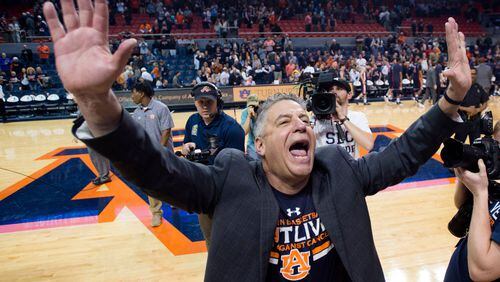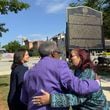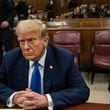On Sunday, the NCAA tournament committee revealed its top 16 seeds. These were merely to stir conversation. Selection Sunday isn't until March 11, and much will change over the next month.
Here, in descending order, were the February Sweet 16: Virginia, Villanova, Xavier, Purdue, Auburn, Kansas, Duke, Cincinnati, Clemson, Texas Tech, Michigan State, North Carolina, Tennessee, Ohio State, Arizona and Oklahoma.
On Thursday, Pete Thamel of Yahoo Sports offered sobering insight into what college basketball could be facing. Owing to the FBI's investigation – we note again: not the NCAA's investigation; the FBI's – into the dark realm of hoops recruiting, an entire industry fears the worst.
Thamel: “What’s becoming increasingly clear as the discovery portion of the case comes to a close is that the breadth of potential NCAA rules violations uncovered is wide enough to fundamentally and indelibly alter the sport.”
Then: “‘This goes a lot deeper in college basketball than four corrupt assistant coaches,’ said a source who has been briefed on the details of the case. ‘When this all comes out, Hall of Fame coaches should be scared, lottery picks won’t be eligible to play and almost half of the 16 teams the NCAA showed on its initial NCAA tournament show should worry about their appearance being vacated.’”
To date, only two of those 16 – Auburn and Arizona – have been directly linked to the investigation. If “almost half” of the 16 are involved, that would mean … what, five more? Neither Auburn nor Arizona is coached by a Hall of Famer, but four of the 16 are: Kansas, Michigan State, Duke and North Carolina.
Note: Louisville was coached by the Hall of Famer Rick Pitino; he was fired in September a day after it was alleged that Adidas paid the family of Louisville signee Brian Bowen $100,000. Bowen was declared ineligible by Louisville; he has enrolled at South Carolina.
Note also: Auburn has been working this season without assistant coach Chuck Person, who was fired after being indicted in federal court. Auburn players Austin Wiley and Daniel Purifoy remain ineligible; the FBI alleges that Person gave $11,000 to the former's mother and $7,500 to the latter's. Coach Bruce Pearl -- who was fired by Tennessee after lying to NCAA investigators -- hasn't yet met with the lawyers conducting Auburn's in-house investigation.
Note also: The Kansas student newspaper reported in October that the Jayhawks had been asked by the FBI to release documents regarding their Adidas connection. Chat Sports reported that, according to sources, Adidas was attempting to steeer Zion Williamson of Spartanburg, S.C., the nation's No. 3 recruit, to Kansas. Williamson's family denied the report. He committed to Duke.
Note also: Arizona assistant Emanuel "Book" Richardson was suspended and fired after his indictment. FBI documents alleged he took $20,000 from an agent to funnel to a player revealed as five-star recruit Jahvon Quinerly, who committed to Arizona. Quinerly just announced he plans to attend Villanova.
On Wednesday, esteemed former colleague Mark Schlabach wrote: "Sources with knowledge of the FBI investigation told ESPN this week that the clandestine probe could result in potential NCAA violations for as many as three dozen Division I programs."
Then: “‘It's not the mid-major programs who were trying to buy players to get to the top,’ a source told ESPN. ‘It's the teams that are already there.’”
As Thamel noted, there's no timetable for the release of all information the FBI has gathered. There's no absolute certainty that the FBI will give everything it has to the NCAA, which lacks subpoena power. And we know too well that there has never been an investigation that the NCAA can't botch. But we said in September that the Feds' involvement could leave the sport in tatters, and we've since heard nothing to alleviate such fears.
As these fingers typed then: “If even half of what has been whispered about college basketball is brought to light, the NCAA tournament committee won’t have to worry about choosing a field of 68. There mightn’t be more than a dozen teams still eligible.”
That was intended, sort of, as hyperbole. Given that there are 351 Division I teams, it probably still is. Probably, I said.
About the Author







